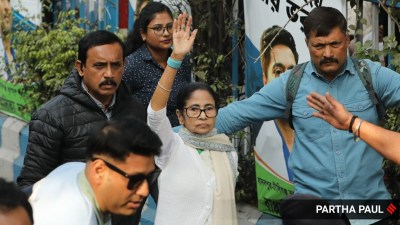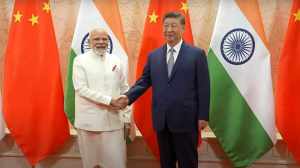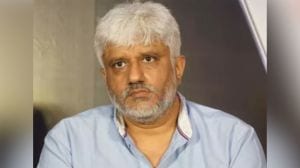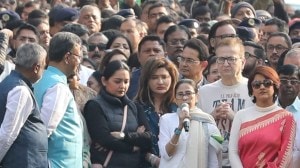Hard and brittle state
JANUARY 30: The Kandahar deal has once more set off a debate on the nature of our state. A majority of those who make up our political cla...

JANUARY 30: The Kandahar deal has once more set off a debate on the nature of our state. A majority of those who make up our political class say that we made a humiliating compromise with the hijackers of the Indian Airlines plane because our state is soft. Advocates of the hard state would have liked a daring storming operation that would have freed the hostages and killed their captors. Then we would have shown to the world that we are a hard state and would have celebrated our hard-state status on the Republic Day. Instead, they say, the soft state sold our national honour to the Pakistani terrorists, robbing us of the pride we earned at Kargil.
Ever since Gunnar Myrdal called us a soft state in the sixties, we have come to believe that we are one, and that all our woes are caused by our softness. According to a recent opinion poll, 81 per cent believe that we are a soft state. Incidentally, when Myrdal came here there was already in place a vast state-controlled economy. Wasn8217;t this because the Indianstate had the enormous power to build such an economy? Jawaharlal Nehru placed the state at the apex of his 8220;command8221; economy model because he wanted to enhance the powers of the state.
Let8217;s see the Indian state in terms of three criteria which generally apply to all democratic states: accountability, transparency and the civility it display towards its citizens. On all these counts, the Indian state would rank way below the democratic states of Europe and North America and certainly much below Gunnar Myrdal8217;s Sweden. The Indian state is hardly accountable to its people and their elected representatives.
Take, for example, the voluminous report the Ram Niwas Mirdha Committee compiled in 1993 on Harshad Mehta8217;s dealings. Nowhere in the report does the word accountability8217; appear. Mehta is a very gifted man but, with all his gifts, could he have manipulated the stock market on his own to the extent he did? Surely, without the funds he could get from the nationalised and cooperative banks, state-ownedfinancial institutions and mutual funds this gigantic manipulation wouldn8217;t have been possible.
The Mirdha report, however, held no institutions and the bureaucrats who ran them accountable for what had happened. This crony capitalism burst, though without the grave consequences such a burst may have had in Indonesia. If no single person in this country can amass the powers that Suharto amassed, it is only because there are too many contending local and regional interests. We have many a local and regional Suharto, who prosper freely.
Take transparency. That ebullient Minister of Urban Development, Ram Jethmalani, once said that information regarding the working of the DDA would be available to the public for a small photocopying fee. He was prepared to part with the information regarding decision-making in the DDA, a move the babudom found so threatening that it conspired to kill it. From the Cabinet Secretary down to a lower divisional clerk, all joined hands to defeat the proposal. Information is powerand it must not be shared with people this is the operational principle of the babudom.
The UTI8217;s refusal to disclose its net asset value is another glaring example of the opaqueness of Indians state. Till the Parikh Committee compelled the UTI to furnish information on the net asset value of its unit, the standard answer of the UTI officials was that it wasn8217;t in the public interest to do so.
If the DDA or the UTI would not let the citizens know how they work, would the Department of Atomic Energy or the Defence Research Development Organisation ever let citizens know how they work? The little information that an intrepid journalist or a public-sp-irited citizen gathers sh-ows that all our nuclear reactors are a public hazard. Secrecy is the mi-ghty shield of the Indian state.
Just go to a nearby electricity or telephone office to see the behaviour of the officials with citizens. In fact, they don8217;t regard them as citizens but only as subjects. Rare is such an official who will say, 8220;May I helpyou?8221;. Most likely he/she will ask, 8220;What do you want, why are you here?8221;The official is rude to you because he thinks you are a supplicant and not a customer. The state is the overseer of the society. The state here enjoys enormous coercive power over the citizens. Apart from the pre-Independence sta-tutes like the Preventive Detention Act and the Defence of India Rule, post-Independence India has enacted a series of anti-civil liberty laws like the MISA, NSA, Special Powers Act, and the TADA. The state has enormous powers to coerce a citizen.
The Indian state is a hard state. Shekhar Gupta is right when he says so The Soft Core of the Hard State, January 1 but wrong when he says that it8217;s a hard state with a soft core. Corruption, inefficiency, incompetence are all tolerated and this, he thinks, provide the soft core of the hard state. On the contrary, corruption in particular is not just tolerated but actually spawned by the hard state because it strengthens its power.
A corrupt individual or anorganisation provides the elite of a hard state with great powers of patronage and source of money. The elite of a hard state is always in need of illicit funds and what better source for such funds than a corrupt organisation! Again, it8217;s in such organisations that the political opponents of a hard-state elite can be placed. This is what Jayalalitha and Laloo Yadav did, and before that Indira and Sanjay Gandhi did on a national scale.
Corruption is an inseparable part of the hard state. Rare is a hard state that is free of corruption. Singapore is one such rare hard state, but many hard states are just shades of Suharto8217;s Indonesia, ranked as the world8217;s most corrupt state.
Soft states are also corrupt and inefficient. But soft states, which have an independent and assertive judiciary and Press, punish corruption and inefficiency. Belgian Prime Minister Guy Verhofstadt calls his country a Kleptocracy8217; but the Belgian state has also on occasions put its Kleptomaniacs behind bars.
Undoubtedly India is ahard state. But it8217;s also a brittle state, perhaps because it8217;s so hard. With its enormous power it cannot collect taxes from more than 1 per cent of the eligible tax payers; it cannot ensure the safety of rail and air passengers; it cannot dissolve grossly inefficient public enterprises. This is the organised sector of our economy, well within the scope of the state power. There is the vast unorganised sector of our economy, which is beyond the pale of the state power. So is the largely unorganised India.
- 01
- 02
- 03
- 04
- 05































